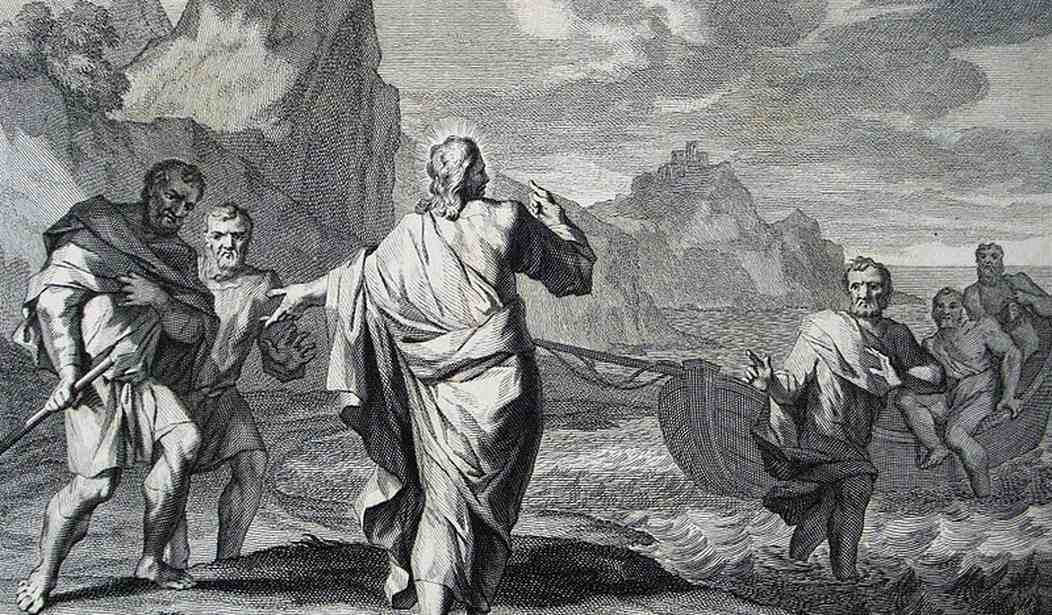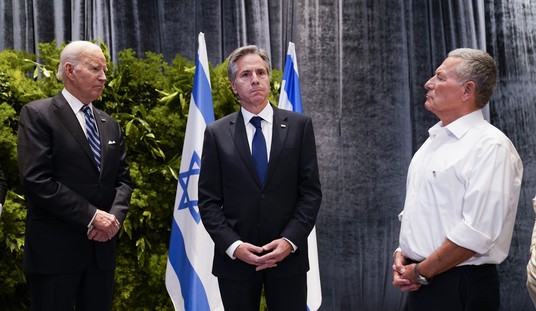This morning’s Gospel reading is Mark 1:14–20:
After John had been arrested, Jesus came to Galilee proclaiming the gospel of God: “This is the time of fulfillment. The kingdom of God is at hand. Repent, and believe in the gospel.”
As he passed by the Sea of Galilee, he saw Simon and his brother Andrew casting their nets into the sea; they were fishermen. Jesus said to them, “Come after me, and I will make you fishers of men.” Then they abandoned their nets and followed him. He walked along a little farther and saw James, the son of Zebedee, and his brother John. They too were in a boat mending their nets. Then he called them. So they left their father Zebedee in the boat along with the hired men and followed him.
What does commitment mean to us? In secular terms, and particularly in America, we tend to think of commitment in legal terms. We think about contracts, pledges, promises, and perhaps even oaths — but in utilitarian terms. Even the classic values of honor and duty have tended to become more transactional in nature generally, and in some cases discarded entirely.
Today’s readings have very specific lessons for us, many of which I have covered in previous reflections in 2018 and 2021. (I hope you’ll check those out and enjoy them today.) For now, though, I want to meditate on the cultural and theological meanings of commitment, and to what we are called in choosing it.
And what better place to start a meditation than with Meditations by Marcus Aurelius? After watching the excellent film The Holdovers in which this classic book plays a small part, I decided to read the book myself. I found it remarkably accessible, albeit in a more modern translation rather than the classic interpretation found here for free. Written more than a century after Christ’s death and resurrection, it contains no mention of Christianity save for a fleeting mention about their “obstinacy” in one of the last books.
However, the Stoicism that Marcus Aurelius adopted as his operating philosophy contains a number of surprises, at least in his meditations. Despite his adherence to the Roman pantheon of gods, Marcus makes references to a single God of the universe at times. He writes of a duty toward humbleness and kindness to others in creation, and of Creation being all-good and all-obedient toward its Creator. In Book 7, for instance, Marcus writes about the ordered universe and its holy nature:
All things are implicated with one another, and the bond is holy; and there is hardly anything unconnected with any other thing. For things have been co-ordinated, and they combine to form the same universe (order). For there is one universe made up of all things, and one God who pervades all things, and one substance, and one law, one common reason in all intelligent animals, and one truth; if indeed there is also one perfection for all animals which are of the same stock and participate in the same reason.
For followers of Saint Ignatius, Marcus’ Stoic approach of indifference will seem very comfortable indeed. Repeatedly, Marcus urges his readers to accept the unfolding of events as the natural order to a path chosen for us. He advises people to focus on their ability to perceive the world truthfully and objectively in order to perceive its rational pattern, and to discipline themselves against provoked passion later in the same book:
The ruling faculty does not disturb itself; I mean, does not frighten itself or cause itself pain. But if any one else can frighten or pain it, let him do so. For the faculty itself will not by its own opinion turn itself into such ways. Let the body itself take care, if it can, that is suffer nothing, and let it speak, if it suffers. But the soul itself, that which is subject to fear, to pain, which has completely the power of forming an opinion about these things, will suffer nothing, for it will never deviate into such a judgement. The leading principle in itself wants nothing, unless it makes a want for itself; and therefore it is both free from perturbation and unimpeded, if it does not disturb and impede itself.
Far from entering an alien world of philosophy, Marcus’ Meditations almost feels like a theological cousin to Christian faith … or at least a cousin once removed. Marcus writes constantly about this duty of discipline, this commitment to goodness as it can best be perceived, and even in his polytheistic context, Marcus grasps that this service is due to a Creator.
However, in the end, all of this feels empty. Marcus’ philosophy tells us much about duty and commitment, but nothing at all about joy or hope. Indeed, Marcus all but dispenses with hope entirely, although he does make allowances at times for the possibility of an afterlife:
About death: Whether it is a dispersion, or a resolution into atoms, or annihilation, it is either extinction or change.
This is where Marcus comes so close, and yet lands so far. It is in Christ that we find hope and joy, which true commitment produces as fruits of faith.
To that end, we are given the two models of commitment in our readings. In the first, Jonah believes in the Lord but doesn’t want to fully commit to His call. The Lord insists on drafting Jonah into His service, so much so that He causes “a great fish” to swallow Jonah and vomit him up on a beach where the Lord commanded Jonah to preach repentance. Jonah finally complies and accomplishes the mission to which the Lord ordered him.
Our Gospel reading demonstrates the beginning of true commitment, however. Simon and Andrew get called to Jesus’ service, despite their familial commitments and lack of training for any sort of evangelical work. Rather than debate the call or reject it, both brothers immediately cast down their nets and follow Jesus. Where Jonah was reluctant to commit to the point of rebelliousness, Simon and Andrew go all in in their commitment — to the eventual point of martyrdom. And the Lord worked wonders through them that benefit us to this very day.
Not every choice in life requires this level of commitment, of course. However, we seem to have lost the true core of what duty, honor, and commitment are. Marcus knew that much, even if he didn’t grasp how hope and joy could flow through a true commitment to the one God. Instead, we seem to expect hope and joy without any serious commitment to duty and honor, which is equally empty as duty and honor without hope and joy. In Christ, all of these come together in His plan for salvation — but only if we’re willing to go all in.
Addendum: I have a Twitter account for tweeting out tidbits from Meditations, along with a little snark and fun along the way. If you’re interested, it’s Marcus Aurelius Meditates, and it’s not used for any sock-puppetry. My authorship (or curation, really) is revealed in the bio.
The front page image is “Jesus Calls His First Disciples By The Sea” by Pieter van der Borcht (1540-1608), precise date unknown. From the Phillip Medhurst Collection of Bible illustrations in the possession of Revd. Philip De Vere at St. George’s Court, Kidderminster, England. Via Wikimedia Commons.
“Sunday Reflection” is a regular feature, looking at the specific readings used in today’s Mass in Catholic parishes around the world. The reflection represents only my own point of view, intended to help prepare myself for the Lord’s day and perhaps spark a meaningful discussion. Previous Sunday Reflections from the main page can be found here.








Join the conversation as a VIP Member